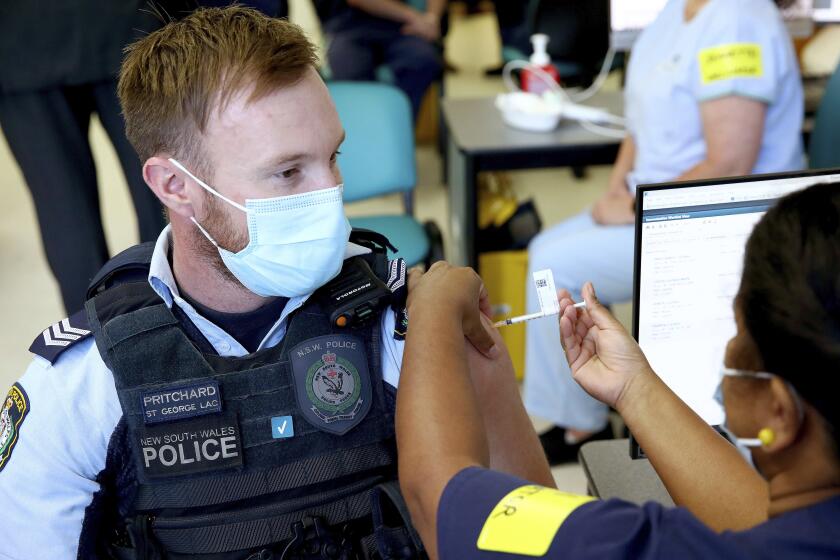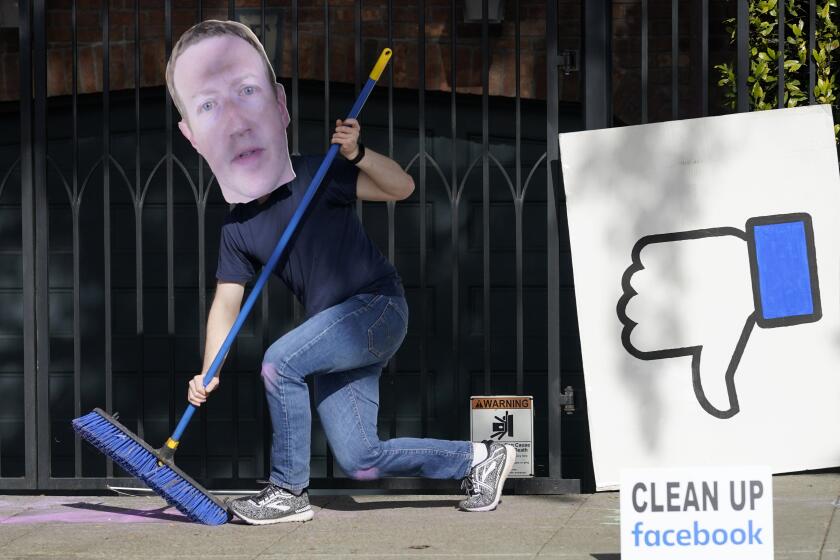Facebook says it will lift its news ban in Australia following deal with government
- Share via
CANBERRA, Australia — Facebook said Tuesday that it would lift its ban on Australians sharing news after it struck a deal with the government on a proposal to make digital giants pay for journalism.
Australian Treasurer Josh Frydenberg and Facebook confirmed that they had agreed on amendments to legislation that would require the social network and Google to pay for Australian news featured on their sites.
Facebook’s cooperation is a major victory for Australia’s efforts to make the two internet gateways pay for the journalism they use.
Facebook blocked Australian users from accessing and sharing news last week after the House of Representatives passed the draft law late Wednesday. The blockade initially cut access to public health, emergency and COVID-19 pandemic services, sparking public outrage.
Australia’s Senate is expected to debate the amended legislation Tuesday.
Frydenberg described the agreed-on amendments as “clarifications” of the government’s intent. He described his negotiations with Facebook Chief Executive Mark Zuckerberg as “difficult.”
“There is no doubt that Australia has been a proxy battle for the world,” Frydenberg said, referring to the dispute over the proposed News Media Bargaining Code legislation. “Facebook and Google have not hidden the fact that they know that the eyes of the world are on Australia, and that is why they have sought to get a code here that is workable.”
This week, Microsoft and four European publishing groups announced they would work together to push for Australian-style rules for news payments from tech platforms.
“The latest twist proves that regulation works,” said Angela Mills Wade, executive director of the European Publishers Council. “Regulators from around the world will be reassured that they can continue to take inspiration from the Australian government’s determination to withstand unacceptable threats from powerful commercial gatekeepers.”
The proposed media code in Australia would lessen Facebook and Google’s enormous bargaining power in their negotiations with Australian news providers by establishing an arbitration panel. That would prevent the digital giants from using their hugely advantageous negotiating positions to make take-it-or-leave-it payment offers to news businesses for their journalism. In case of disputes, the arbitration panel would make a binding decision on a winning offer.
Australia has started its COVID-19 inoculation program days after its neighbor New Zealand, with little sense of hurry in either country.
Belinda Barnet, a senior lecturer on media at Swinburne University of Technology, said the proposed amendments would give Facebook time to strike deals for news content before the arbitration panel stepped in.
Peter Lewis, director of the Australia Institute’s Center for Responsible Technology, said in a statement that the “amendments keep the integrity of the media code intact.”
Google also had threatened to remove its search functions from Australia because it said the proposed law was unworkable.
But that threat has faded. The search engine giant has been signing up Australia’s largest media companies in content licensing deals through its News Showcase model.
Activists see a double standard in social media companies’ response to the Capitol attack and their tolerance for violent rhetoric abroad.
The platform says it has deals with more than 50 Australian titles through Showcase and more than 500 publishers globally using the model, which was launched in October.
Facebook said it would now negotiate deals with Australian publishers under its own model, Facebook News.
“We are satisfied that the Australian government has agreed to a number of changes and guarantees that address our core concerns about allowing commercial deals that recognize the value our platform provides to publishers relative to the value we receive from them,” Facebook regional managing director William Easton said.
“As a result of these changes, we can now work to further our investment in public-interest journalism and restore news on Facebook for Australians in the coming days, ” Easton added.
More to Read
Sign up for Essential California
The most important California stories and recommendations in your inbox every morning.
You may occasionally receive promotional content from the Los Angeles Times.














